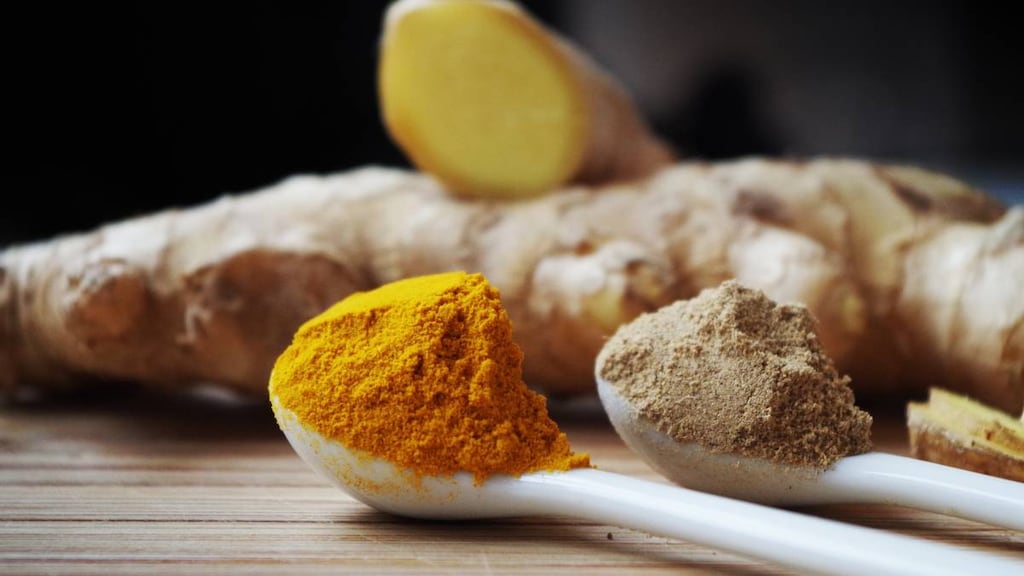Psoriatic arthritis diet guide: Foods to eat and foods to avoid


Psoriatic arthritis, or PsA, is a form of chronic inflammatory arthritis that causes inflammation, pain, and swelling. It is commonly associated with a skin condition called psoriasis. About 30 percent of people diagnosed with psoriasis will go on to develop psoriatic arthritis.
Dietary interventions and natural remedies are used to manage the symptoms of psoriatic arthritis and are used as an add-on to standard medical therapies.
There isn’t one diet that will help everyone with psoriatic arthritis and diet changes won’t cure the disease, but they may help to reduce inflammation and weight and lead to an improvement in psoriatic arthritis symptoms.
The National Psoriasis Foundation has made evidence-based recommendations on dietary interventions for psoriatic arthritis
After looking at all the evidence available, The National Psoriasis Foundation has made recommendations on dietary interventions for people with psoriatic arthritis. Three key findings were reported in their latest report.
-
Weight reduction recommended for overweight and obese people with psoriatic arthritis
The National Psoriasis Foundation’s Medical Board recommends that overweight and obese patients (Body Mass Index, BMI ≥ 25) with psoriatic arthritis reduce their weight using a hypocaloric - low calorie - diet. This is recommended as an add-on to standard medical therapies.
Weight loss has been shown to significantly reduced disease activity in obese people with psoriatic arthritis, including disease activity in joints, the skin, and the connective tissue between a tendon or ligament and bone (enthesis).
Successful weight loss in people with psoriatic arthritis who are starting on tumor necrosis factor ɑ (TNFɑ) blockers, such as Enbrel (etanercept), Humira (adalimumab) or Remicade (infliximab), has also been associated with higher rates of achievement of minimal disease activity. -
Vitamin D supplementation recommended for people with psoriatic arthritis
The National Psoriasis Foundation’s Medical Board also recommends taking a vitamin D supplement (0.5µg alfacalcidol or 0.5-2.0µg calcitriol) as an add-on to standard medical therapies. While the research is very limited, two small studies suggested that six months of vitamin D supplementation is useful for decreasing disease activity in people with psoriatic arthritis. -
Fish oil supplementation ineffective in psoriatic arthritis
Fish oil supplementation was found to be ineffective for psoriatic arthritis by the National Psoriasis Foundation Medical Board, after they reviewed the available evidence.
Because of a lack of evidence the National Psoriasis Foundation was unable to determine whether some interventions were beneficial or not, including a gluten-free diet, or supplementation with selenium, vitamin B12, or combination micronutrients.
A healthy, well-balanced diet is important if you have psoriatic arthritis
While there isn’t a specific diet recommended to manage psoriatic arthritis symptoms, it is important for those with this autoimmune disease to eat a healthy and well-balanced diet.
Some foods may not specifically affect your psoriatic arthritis symptoms, but including them or omitting them from your diet may improve your overall health.
A diet full of fresh fruit and vegetables and low in fat, sugar and salt is recommended. Cutting out unhealthy foods that may cause fatigue and inflammation is beneficial.
A healthy diet is especially important for those with psoriatic arthritis because it is associated with a range of other conditions or comorbidities. These conditions include:
- Cardiovascular disease
- Diabetes
- Obesity
- Non-alcoholic fatty liver disease
- Depression
- Osteoporosis
- Gout
- Skin Care
- Inflammatory Bowel disease
- Vision problem
- Arthritis mutilans
Foods to eat for psoriatic arthritis
A healthy, well-balanced diet should include a wide range of different foods.
Foods that have anti-inflammatory properties may help, such as tomatoes, olive oil, green leafy vegetables, almonds and walnuts, fatty fish and fruits including strawberries, blueberries, cherries and oranges. These foods and others are key parts of a Mediterranean diet.
| Group | Examples |
|
Vegetables (9 or more servings of fruit and vegetables daily. A serving is 1-2 cups) |
Collards, kale, spinach, swiss chard, broccoli, cabbage, carrots, cauliflower, brussel sprouts, garlic, leeks, onions, and scallions |
|
Fruits (9 or more servings of fruit and vegetables daily. A serving is 1-2 cups) |
Avocado, blueberries, cherries, raspberries, blackberries, apples, apricots, tomatoes and citrus fruits, such as oranges, grapefruit and limes |
|
Fish (3-4 ounces (85-113g) of fish twice a week) |
Trout, salmon, tuna, sardines, anchovies, scallops, herring, and mackerel. Canned fish that doesn’t have additives such as flavoring |
|
Beans and legumes (1 cup of beans twice a week or more) |
Lentils, cannellini beans, black beans, red kidney beans, small red beans, pinto beans and chickpeas (garbanzo beans) |
|
Nuts and seeds (1.5 ounces (43g) of nuts daily - about a handful) |
Walnuts, flaxseed, pinenuts, pistachios, almonds, and chia seeds |
| Dairy | Non-fat greek yogurt with live cultures, milk - skim or low fat, cheddar cheese, cottage cheese, ricotta and fortified alternative dairy products |
|
Oils (2-3 tablespoons daily) |
Olive oil, avocado oil and walnut oil |
| Fermented food | Kimchi and sauerkraut |
| Meat | Chicken, turkey and other lean cuts of red meat such as flank, sirloin, or tenderloin |
|
Bread, cereals and grains (6 ounces (170g) of grains daily - half from whole grains) |
High fiber bread and cereals, brown rice, whole-wheat pasta and flour, quinoa, millet, farro, oatmeal and bulgur. Look for pasta alternatives made from vegetables or other grains |
| Beverages | Water, green team including matcha tea, and kefir |
Foods to avoid or limit with psoriatic arthritis
Certain foods and beverages may trigger psoriatic arthritis symptoms to flare up. Nightshade vegetables are one food group that some people think make their symptoms worse, while others find they are fine to eat them. If you suspect you have a problem with a particular food try cutting it out of your diet for a few weeks and then slowly reintroducing it while keeping an eye on your symptoms.
There are also a number of foods that can cause inflammation and it is recommended that these foods be limited or avoided. Sugar, saturated fats, trans fats, omega 6 fatty acids, refined carbohydrates, mono-sodium glutamate (MSG), gluten and casein, aspartame and alcohol are all thought to cause inflammation.
| Group | Examples |
| Nightshade vegetable | Eggplant, tomatoes, potatoes and red bell peppers |
| Processed meats | Sausages, deli meats, hot dogs, bacon, and ham |
| Alcohol | Alcoholic beverages |
| Other beverages | Sugary soda and fruit juices |
| High-sugar foods |
Pastries, chocolate, cookies and cakes, desserts and other sugary foods Look for ingredients ending in ‘ose’, such as sucrose or fructose, which are types of sugar |
| Aspartame | An artificial sweetener found in many products |
| Refined carbohydrates | White flour products including breads and crackers, white rice, white potatoes, pasta and many cereals |
| Mono-sodium glutamate (MSG) | A flavor additive in food, which is generally found in prepared asian meals and soy sauce, fast foods, deli meats, prepared soups, and salad dressings |
| Gluten and casein | Gluten is found in wheat, barley and rye, and casein is found in dairy products |
| Foods containing saturated and trans fats | Fast foods and fried foods, onion rings, pizza and fatty cuts of meat, most stick margarine products, cheese, processed snack foods, frozen breakfast products, cookies, donuts and crackers |
| Baked goods | Cookies, donuts, cakes, crackers, pies, and sausage rolls |
| Dairy products | Sweetened dairy products such as flavored yogurts, milk, and sweetened milk alternatives |
| Ready meals or pre-prepared foods | Mac and cheese, instant potatoes, jar sauces and gravies, and processed snack foods |
| Cooking oils and dressings containing omega 6 fatty acids | Vegetable, corn, safflower, grapeseed, sunflower, soy and peanut oils and many salad dressings including mayonnaise |
Bottom line
- Eat a diet full of fresh fruit and vegetables that is low in fat, sugar and salt.
- Eat plenty of different colored vegetables and fruits as they are high in antioxidants. Antioxidants act as a body’s natural defense by slowing down or preventing ‘free radicals’ from harming cells.
- Grill, broil, bake or steam food using a small amount of extra virgin olive oil or avocado oil.
- Drink plenty of water during the day.
- Cut out or limit processed meats, alcohol, fried food, white bread, white rice, processed foods, and other foods and drinks high in sugar.
- If you are overweight or obese then work on reducing you weight.
- Keep a food diary of all the foods you eat and how they make you feel. Use this to help identify foods that make your psoriatic arthritis symptoms worse.
- Talk with your healthcare provider or nutritionist about what changes you should make to your diet. Don’t cut out foods unnecessarily.
- A healthy diet should be used as an add-on the standard medical therapies to help manage psoriatic arthritis symptoms.
Article references
- National Psoriasis Foundation (NPF). Psoriasis and Diet: Researchers Examine the Relationship Between Food and Disease. Available at: https://www.psoriasis.org/advance/psoriasis-and-diet-researchers-examine-the-relationship/. [Accessed April 23, 2021].
- Ford AR, Siegel M, Bagel J, et al. Dietary Recommendations for Adults With Psoriasis or Psoriatic Arthritis From the Medical Board of the National Psoriasis Foundation: A Systematic Review . JAMA Dermatol. 2018;154(8):934–950. doi:10.1001/jamadermatol.2018.1412.
- Singh JA, Guyatt G, Ogdie A, et al. Special Article: 2018 American College of Rheumatology/National Psoriasis Foundation Guideline for the Treatment of Psoriatic Arthritis. Arthritis Rheumatol. 2019;71(1):5-32. doi:10.1002/art.40726.
- Klingberg E, Bilberg A, Björkman S, et al. Weight loss improves disease activity in patients with psoriatic arthritis and obesity: an interventional study. Arthritis Res Ther. 2019;21(1):17. Published 2019 Jan 11. doi:10.1186/s13075-019-1810-5.
- Di Minno MN, Peluso R, Iervolino S, et al. Weight loss and achievement of minimal disease activity in patients with psoriatic arthritis starting treatment with tumour necrosis factor α blockers. Ann Rheum Dis. 2014;73(6):1157-1162. doi:10.1136/annrheumdis-2012-202812.
- Gaál J, Lakos G, Szodoray P, et al. Immunological and clinical effects of alphacalcidol in patients with psoriatic arthropathy: results of an open, follow-up pilot study. Acta Derm Venereol. 2009;89(2):140-144. doi:10.2340/00015555-0555.
- Huckins D, Felson DT, Holick M. Treatment of psoriatic arthritis with oral 1,25-dihydroxyvitamin D3: a pilot study. Arthritis Rheum. 1990;33(11):1723-1727. doi:10.1002/art.1780331117.
- Kristensen S, Schmidt EB, Schlemmer A, et al. Beneficial effect of n-3 polyunsaturated fatty acids on inflammation and analgesic use in psoriatic arthritis: a randomized, double blind, placebo-controlled trial. Scand J Rheumatol. 2018;47(1):27-36. doi:10.1080/03009742.2017.1287304.
- Madland TM, Björkkjaer T, Brunborg LA, et al. Subjective improvement in patients with psoriatic arthritis after short-term oral treatment with seal oil. A pilot study with double blind comparison to soy oil. J Rheumatol. 2006;33(2):307-310.
- Veale DJ, Torley HI, Richards IM, et al. A double-blind placebo controlled trial of Efamol Marine on skin and joint symptoms of psoriatic arthritis. Br J Rheumatol. 1994;33(10):954-958. doi:10.1093/rheumatology/33.10.954.
- Arthritis Foundation. Metabolic Comorbidities of Psoriatic Arthritis. Available at: https://www.arthritis.org/health-wellness/about-arthritis/related-conditions/other-diseases/metabolic-comorbidities-of-psoriatic-arthritis. [Accessed April 23, 2021].
- Creaky Joints. 11 Psoriatic Arthritis Complications You Need to Know About. August 16, 2019. Available at: https://creakyjoints.org/about-arthritis/psoriatic-arthritis/psa-overview/psoriatic-arthritis-complications/. [Accessed April 23, 2021].
- National Psoriasis Foundation (NFP). What’s the Deal with the Anti-Inflammatory Diet? Available at: https://www.psoriasis.org/advance/whats-the-deal-with-the-anti-inflammatory-diet/. [Accessed April 23, 2021].
- Arthritis Foundation. Psoriatic Arthritis. Available at: https://www.arthritis.org/diseases/psoriatic-arthritis. [Accessed April 23, 2021].
- Arthritis Foundation. The Ultimate Arthritis Diet. Available at: https://www.arthritis.org/health-wellness/healthy-living/nutrition/anti-inflammatory/the-ultimate-arthritis-diet. [Accessed April 23, 20201].
- Arthritis Foundation. 8 Food Ingredients That Can Cause Inflammation. Available at: https://www.arthritis.org/health-wellness/healthy-living/nutrition/foods-to-limit/8-food-ingredients-that-can-cause-inflammation. [Accessed April 23, 2021].
- Arthritis Foundation. 36 Tips for an arthritis-friendly diet from the experts at the Arthritis Foundation. Available at: https://www.arthritis.org/getmedia/d5d11e00-977f-4e39-bdc4-46aa821857df/36-tips-diet-tips.pdf. [Accessed April 23, 2021].
- NZ Nutrition Foundation. Antioxidants. Available at: https://nutritionfoundation.org.nz/nutrition-facts/nutrition-a-z/Antioxidants. [Accessed April 23, 2021].



